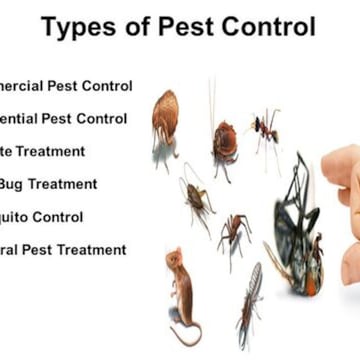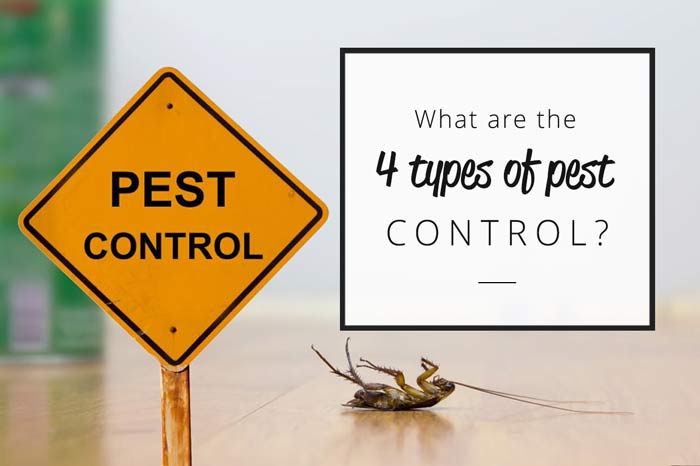Some Ideas on Pest Control You Should Know
Some Ideas on Pest Control You Should Know
Blog Article
Some Known Incorrect Statements About Pest Control
Table of Contents3 Simple Techniques For Pest ControlLittle Known Questions About Pest Control.Not known Facts About Pest ControlThe 2-Minute Rule for Pest ControlPest Control Fundamentals Explained
Limitations of Chemical Management Have the ability to analyze pest problems, figure out if administration is required, and make appropriate referrals using IPM strategies. Be familiar with different techniques of pest management - their benefits and limitations. Comprehend the value of valuable pests. It is not possibleor also desirableto rid yards of all pests.This phase goes over (IPM), an approach that uses understanding concerning parasites and their, techniques, nonchemical approaches, and chemicals to handle pest problems. Added info about IPM for specific plants is consisted of in phases that focus on those plants. Nonchemical pest control measures are worried in chapter 17, "Organic Horticulture." Managing birds and creatures is covered in phase 20, "Wildlife." Managing in the yard and yard is covered in phase 6, "Weeds." Bugs in a yard or landscape may consist of insects and mites, weeds,, animals, and birds.
Lots of people hurry to pull, hoe, or spray every weed they see. Pests and weeds, nonetheless, contribute in the. After planting a yard or establishing a yard, the natural procedure of plant sequence begins to improve and nonnative plants. A weed expanding in a lawn represents the initial stage in a series of events that, if enabled to proceed, can at some point lead to a forest.
What we call "parasites" are part of a natural system at the workplace. A community has no bugs. Only humans take into consideration specific varieties insects when they take place where they are not wanted. We will certainly be a lot more effective in managing unwanted varieties when we recognize that these organisms comply with foreseeable patterns that we can make use of to our benefit.
The Facts About Pest Control Revealed
Bugs vulnerable to a chemical were rapidly eliminated, leaving resistant ones to breed and increase. It ended up being clear that pesticides alone would not address all insect troubles. Rather, overuse of pesticides caused the development of immune insects. Scientists started to develop a brand-new technique to pest control. This new approach was referred to as incorporated insect administration (IPM).
An IPM strategy enables some level of insects in the setting. Pests are a lot less likely to survive a program that uses several techniques of reducing their populations. Integrated parasite management was first suggested by entomologists because pests were the very first group of pests to confirm tough to manage with chemicals alone.
A limit is the factor at which action should be taken. IPM has actually expanded beyond pests to administration of all pest populations: weeds, disease organisms, and mammals.
The Only Guide for Pest Control
Administration instead than Our site eradication of pests is the objective. An IPM plan begins with a careful assessment of each insect invasion. Just then can one make a decision regarding the appropriate techniques essential to reduce parasite activities. The life process of the insect, possible damage, all-natural adversaries, and impacts of climate, to name a few factors, are considered before a control strategy is carried out - Pest Control.
Clover expanding in a grass might be considered as an undesirable weed, however as a vegetable it is manufacturing nitrogen for the soil and the flowers are giving nectar to honey and other. Resistance for some weeds might belong to an IPM strategy. may be eating the fallen leaves of a plant, however when they are determined as the larvae of Eastern tiger swallowtail butterflies, their damages might be tolerated so we can take pleasure in the stunning butterfly.

The 2nd most important tool in insect management is early treatment. Responding to issues rapidly, prior to they have time to increase, needs a much less significant intervention.
What Does Pest Control Do?
Several secure, practical, nonchemical methods of plant defense and insect management might decrease or remove the demand to spray. Various other methods are most beneficial when utilized with chemicals. To implement management methods correctly and to reduce losses, gardeners should know the sorts of parasites that attack plants and comprehend pest biology.

Performing a dirt examination and applying just the recommended amount of fertilizer and lime takes full advantage of the benefit to the plant while minimizing issues associated with excessive use fertilizer - Pest Control. Covering the dirt with a number of inches of compost secures the plant in numerous means: minimizing dirt water loss to dissipation, minimizing weed competition, supplying nutrients, and producing an appropriate atmosphere for earthworms and microorganisms that keep the soil loosened for origins and break down natural product to launch nutrients
If mulch touches the trunk, it can develop a means for voles, germs, and fungi to assault the plant. Do not utilize manure or garden compost that has not completely decomposed as a top dressing due to the fact that it can motivate undesirable insects. Research study suggests that farming is detrimental to dirt structure.
The Best Strategy To Use For Pest Control
If tilling is considered needed, take into consideration doing it in the autumn when the life cycles of numerous insects brings them near the surface. At the surface, bugs end up being subjected to the weather as well as look at this now birds and other natural adversaries. Fall tilling can likewise destroy bugs in plant residues. Use disease-free and insect-free qualified seeds and plants if offered.
Report this page